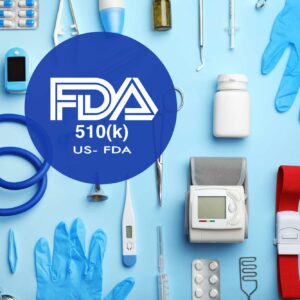FDA’s recent step in issuing Import Alert 99-48 for food products containing chemical contaminants has sent ripples through the food industry and businesses engaged in food production. Particularly affected are companies involved in the production of products containing per- and polyfluoroalkyl substances (PFAS) or other chemical contaminants.
PFAS are a group of man-made chemicals that have been widely used in various industries for decades due to their water and grease-resistant properties. However, their persistence in the environment and potential health risks have raised serious concerns among health authorities. PFAS compounds have been linked to numerous adverse health effects, including developmental delays, reproductive issues, liver damage, immune system dysfunction, and an increased risk of certain cancers. As these chemicals can accumulate in the human body over time, even low levels of exposure can pose significant risks, particularly for vulnerable populations such as pregnant women, infants, and children. The FDA’s move reflects growing concerns over public health and safety, while also posing significant challenges for businesses operating in this space.
Impact on Food Production Businesses
For businesses involved in food production, the FDA’s Import Alert necessitates heightened scrutiny of their supply chains and manufacturing processes. Contamination with chemical substances like PFAS can occur at various stages of production, from sourcing raw materials to packaging and distribution. Companies must now prioritize implementing robust testing and quality control measures to ensure compliance with regulatory standards and mitigate the risk of importing contaminated products.
This heightened regulatory scrutiny may also lead to increased operational costs for food production businesses. Investments in advanced testing equipment, laboratory facilities, and staff training may be necessary to meet the stringent requirements imposed by regulatory authorities. Additionally, businesses may face delays or disruptions in their supply chains as they work to identify and rectify sources of contamination, potentially impacting production schedules and revenue streams.
Challenges for Businesses Producing Products with PFAS
Businesses that produce products containing PFAS, such as non-stick cookware or food packaging materials, face unique challenges in light of the FDA’s Import Alert. PFAS have been widely used in various industries due to their desirable properties, but mounting evidence of their adverse health effects has led to increased regulatory scrutiny and consumer awareness.
The FDA’s Import Alert sends a clear signal to businesses producing PFAS-containing products that adherence to safety and quality standards is paramount. Companies must invest in research and development efforts to identify safer alternatives to PFAS and address consumer concerns about chemical contamination. Moreover, businesses may need to revise their marketing strategies and product labeling to provide transparent information to consumers about the presence of PFAS and any associated risks.
Additionally, as the Import Alert serves as a preventive measure to halt the entry of contaminated food products into the United States, importers will now be required to provide evidence of PFAS testing and compliance with regulatory standards to ensure the safety of imported food products.
As a reminder, FDA is authorized to refuse admission of food products if the articles appear to violate the Federal Food, Drug & Cosmetic Act (FDCA), and the Agency’s physical examination is not required. FDA may subject specific firms and their food products with levels of chemical contaminants that may pose a risk to human health, to this new Import Alert 99-48. Once a product is subject to an FDA Import Alert, the facility named on the Import Alert (e.g. manufacturer, importer, etc.) has the burden to demonstrate to the FDA that the conditions that gave rise to the appearance of the violation has resolved, so that the Agency will have confidence that future products will be compliant. Businesses listed on FDA’s new Import Alert will need to comply with providing the agency with all relevant supporting information to seek removal from the Alert.
Opportunities for Innovation and Collaboration
While the FDA’s Import Alert poses significant challenges for businesses in the food production and PFAS industries, it also presents opportunities for innovation and collaboration. Companies that invest in research and development of safer alternatives to PFAS stand to gain a competitive advantage in the marketplace. Moreover, partnerships between industry stakeholders, regulatory agencies, and scientific experts can facilitate knowledge-sharing and best practices for mitigating chemical contamination in the food supply chain.
Businesses that demonstrate a commitment to transparency, product safety, and environmental sustainability are likely to earn the trust and loyalty of consumers. By prioritizing consumer health and safety, companies can not only navigate regulatory challenges but also contribute to a healthier and more resilient food system.
In sum, the FDA’s issuance of an import alert for food products with chemical contaminants underscores the importance of stringent regulatory oversight and consumer protection in the food industry. While this development poses challenges for businesses engaged in food production and the production of products containing PFAS, it also presents opportunities for innovation, collaboration, and market differentiation. Moving forward, businesses must prioritize investment in testing, quality control, and research efforts to ensure compliance with regulatory standards and meet consumer demand for safe and sustainable products.
For questions on FDA’s Import Alert, including Removal from Import Alert, or for questions on any other FDA regulatory compliance or enforcement matters, please contact us at info@garg-law.com.


